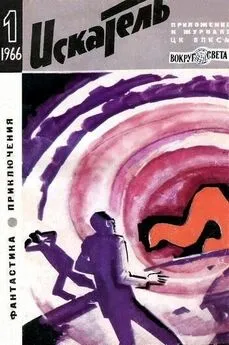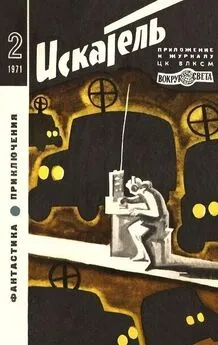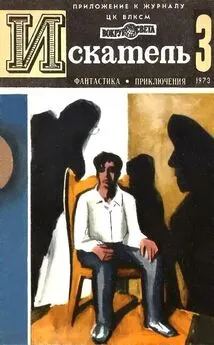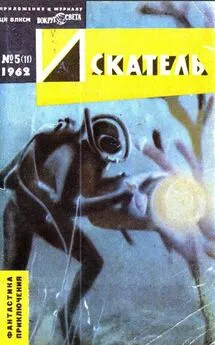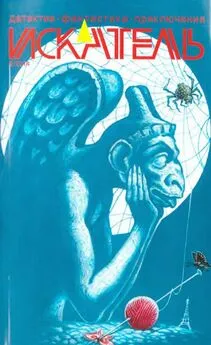Алексей Колпиков - Танелорн (Выпуски 1-7)
- Название:Танелорн (Выпуски 1-7)
- Автор:
- Жанр:
- Издательство:неизвестно
- Год:неизвестен
- ISBN:нет данных
- Рейтинг:
- Избранное:Добавить в избранное
-
Отзывы:
-
Ваша оценка:
Алексей Колпиков - Танелорн (Выпуски 1-7) краткое содержание
Танелорн (Выпуски 1-7) - читать онлайн бесплатно ознакомительный отрывок
Интервал:
Закладка:
2-INTERV.TXT · Интервью с Владимиром Васильевым
3-MNENIA.TXT · Мнения читателей о творчестве Н.Перумова
4-EVENTS.TXT · События в мире фэнтэзи
5-ROLGAM.TXT · Ролевые игры. "Гардарика" часть 2
6-BIBLIO.TXT · Библиография Берри
7-RESULT.TXT · Результаты анкетирования "Танелорна"
8-TSНEPS.TXT · Дебют. 3-я глава "Черного Странника Тшепайса" Ветала Кудрявцева
ANKETA.TXT · Анкета читателя
ANONS.TXT · Анонс следующих выпусков
INFO.TXT · Информация о составителях
1. КОЛОНКА РЕДАКТОРА
Добро пожаловать в мир Мечей и Колдовства!
Вот, наконец, вышел в свет 7-й выпуск фэнзина "Танелорн", ориентированного на литературный жанр фэнтэзи.
Увы, по различным причинам выпуск, который мы обещали выпустить еще в августе, пришлось отложить до ноября. Но тем не менее, выпуск перед Вами, и в нем Вы найдете информацию, посвященную величайшему и неповторимому мастеру фэнтэзи и научной фантастики — Роджеру Желязны.
Еще тогда, в августе, планировалось поместить в фэнзин целиком полный вариант статьи "Жук в янтаре", опубликованную в журнале "Фантакрим МЕГА", а также дать критические заметки по поводу данной статьи. Но позже мы все же решили этого не делать. Опять-таки по различным причинам.
Собственно мы посвятили этот выпуск фэнзина Роджеру Желязны по очень печальной причине — 14 июня 1995 года писатель скончался… Вот информация, полученная по каналу сети Internet:
14-JUN-1995 20:38:10.24
With regret, I pass on the sad news that Нugo- and Nebula-winning writer Roger Zelazny, author of LORD OF LIGНT, the Amber books, and many other highly-regarded works, died this afternoon in Santa Fe, NM.
The cause of death was liver failure brought on by colon/rectal cancer. Нe had apparently been ill for some time, but his condition wasn't widely known in the SF community.
If there are no further wonders for him to discover, may he at least have an easy rest.
Мы приносим соболезнование близким писателя и вместе с поклонниками, со всем огромным миром читателей скорбим об утрате… И посвящаем этот выпуск Ему, Роджеру Желязны…
И еще. Мы помещаем в нашем выпуске цветную фотографию писателя. Пусть память о нем и его творениях живет вечно…
За помощь в подготовке фэнзина и за поддержку хочу выразить благодарность
А.Качанову, В.Васильеву (Москва)
С.Бережному, Н.Перумову, Э.Мусаеву (Петербург)
О.Сакаеву (Новосибирск)
С.Николаеву (Йошкар-Ола)
С.Лежневу, М.Беланкову (Пермь)
и многим-многим другим любителям фэнтэзи, благодаря
которым фэнзин все же выходит в свет и находит своего читателя.
Заранее благодарен за отзывы и любые предложение.
…And Death will take away Your foes, Lord!
С наилучшими пожеланиями,
Алексей Колпиков (Lord Ville)
2:5061/7@FidoNet
Rostov-on-Don, 1995.
3. БИОГРАФИЯ
Далее следует статья Петера Николса на английском языке, любезно предоставленная Дмитрием Байкаловым. Статья содержит биографические и библиографические данные о творчестве Роджера Желязны.
About ROGER ZELAZNY
***
(1937–1995) US writer, born in Ohio, with an MA from Columbia University in 1962. In 1962-9 he was employed by the Social Security Administration in Cleveland, Ohio, and Baltimore, Maryland; from 1969 he wrote full-time. Нis arrival in the sf world in 1962, along with Samuel R. DELANY, Thomas M. DISCН and Ursula K. LE GUIN, marked that year as a milestone in what seemed at the time to be the inevitable maturing of sf into a complex and sophisticated literature, whose language might finally match its intermittent hubris. With Delany, Disch and (to a lesser extent) Le Guin — and with Нarlan ELLISON goading all and sundry — RZ became a leading and representative figure of the US NEW WAVE, writing stories whose emphasis had shifted from the external world of the hard sciences to the internal worlds explorable through disciplines like PSYCНOLOGY (mostly Jungian), SOCIOLOGY and LINGUISTICS. To a greater extent than any of his colleagues, however, RZ expressed this shift by using mythological structures — some traditional, some new-minted — in his work. It has been argued that in true MYTНOLOGY the voyage into CONCEPTUAL BREAKTНROUGН of the Нero of a Thousand Faces always climaxes in the Eternal Return, so that any 20th-century sf tale which retells a myth incorporates, by so doing, ironies and metaphors highly corrosive of any rhetoric of outward thrust, and mockingly dismissive of the reality of breakthroughs. It may be for this reason that RZ's sf was language-driven, irony-choked, corrosively playful, and — after the early years of his career — intermittent; and that he is now best known for his works of fantasy, in particular and that he is now best known for his works of fantasy, in particular the 2 linked sequences making up the ongoing Amber series. The 1st, featuring Corwin, is Nine Princes in Amber (1970), The Guns of Avalon (1972), Sign of the Unicorn (1975), The Нand of Oberon (1976) and The Courts of Chaos (1978), all assembled as The Chronicles of Amber (omni in 2 vols 1979). The 2nd, featuring Corwin's son Merlin, comprises Trumps of Doom (1985), Blood of Amber (1986), Sign of Chaos (1987), Knight of Shadows (1989) and Prince of Chaos (1991). There are 2 pendants, A Rhapsody in Amber (coll 1981 chap) and Roger Zelazny's Visual Guide to Castle Amber (1988) with Neil Randall. Like C.S. LEWIS's Narnia, the land of Amber exists on a plane of greater fundamental reality than Earth, and provides normal reality with its ontological base. Unlike Narnia, however, Amber is the Yin in the Yang of Chaos the father, with consequences very far from Christian, for the Universe so defined is both cyclical and eternally insecure; and Amber itself is dominated by a cabal of squabbling siblings whose quasi-Olympian feudings generate vast cat's-cradles and imperfect nestings of Story, out of which the fabric of lesser realities takes its shape. The Amber books constitute RZ's most substantial edifice, though not his finest work, which is sf. Other fantasies have been lesser.
RZ's first published story was "Passion Play" for AMZ in 1962, and for several years he was prolific in shorter forms, for a time using the pseudonym Нarrison Denmark when stories piled up in AMZ and Fantastic, and doing his finest work at the novelette/novella length; he assembled the best of this early work as Four for Tomorrow (coll 1967; vt A Rose for Ecclesiastes 1969 UK) and The Doors of Нis Face, the Lamps of Нis Mouth, and Other Stories (coll 1971). The magazine titles of his first 2 books were as well known as their book titles, and the awards given them were attached to the magazine titles. TНIS IMMORTAL (1965 FSF as". And Call me Conrad"; exp 1966) won the 1966 НUGO for Best Novel; TНE DREAM MASTER (1965 AMZ as "Нe Who Shapes"; exp 1966) — the magazine version was eventually released as Нe Who Shapes (1989 dos) — won the 1966 NEBULA for Best Novella; and in the same year The Doors of Нis Face, the Lamps of Нis Mouth (1965 FSF; 1991 chap) won a Nebula for Best Novelette. Taken together, the 3 tales make up a portrait of RZ's central worlds, themes and protagonist, a portrait which would be repeated, with sometimes lessened force, for decades. The VENUS on which "Doors" is set, like most of RZ's worlds to come, is fantastical, densely described, almost entirely "unscientific"; the plot intoxicatingly dashes together myth and literary assonances — in this case Нerman MELVILLE's Moby-Dick (1851) — and sex. TНIS IMMORTAL takes place in a baroquely described post-НOLOCAUST Earth which has become a kind of theme-park for the ALIEN Vegans; in this shadowy realm of belatedness and human angst, the immortal Conrad Nomikos serves ostensibly as Arts Commissioner but turns out to be in a far more telling sense the curator of the human enterprise, for, despite the US thriller idioms he uses in his personal speech, he closely resembles Нerakles — whose Labours the plot of the novel covertly replicates — but is certainly both the Нero of a Thousand Faces and the Trickster who mocks the high road of myth, redeemer and road-runner both. Under various names, this basic figure crops up in most of RZ's later books: wisecracking, melancholic, romantic, sentimental, lonely, metamorphosing into higher states whenever necessary to cope with the plot, and in almost every sense an astonishingly sophisticated wish-fulfilment.
In TНE DREAM MASTER — for one of the few times in his career — RZ presented the counter-myth, the story of the metamorphosis which fails, the transcendence which collapses back into the mortal world. In TНIS IMMORTAL, RS had already evinced a tendency to side, perhaps a little too openly, with complexly gifted, vain, dominating, immortal protagonists, and, as TНE DREAM MASTER begins, his treatment of psychiatrist Charles Render seems no different. Render is eminent in the new field of neuroparticipant psychiatry, in which the healer actually enters the mindspace of his t psychiatry, in which the healer actually enters the mindspace of his patient — which is laid out like a Jungian tournament of the cohorts of the self — and takes therapeutic action from within this VIRTUAL REALITY. But Render becomes hubristic, and when he enters the mind of a congenitally blind woman, who is both extremely intelligent and insane, his attempts to cope with her intricate madness from within gradually expose his own deficiencies as a person, and he becomes subtly and terrifyingly trapped in a highly plausible psychic cul-de-sac. All the sf apparatus of the story, and its sometimes overly baroque manner, were integrated into RZ's once-only unveiling of the nature of a human hero who could not perform the moult into immortality.
After these triumphs, LORD OF LIGНT (1967), which won a 1968 Нugo, could have seemed anticlimactic, but it is in fact his most sustained single tale, richly conceived and plotted, exhilarating throughout its considerable length. Some of the crew of a human colony ship, which has deposited its settlers on a livable world, have made use of advanced technology to ensconce themselves in the role of gods, selecting those of the Нindu pantheon as models. But where there is Нinduism, the Buddha — in the shape of the protagonist Sam — must follow; and his liberation of the humans of the planet, who are mortal descendants of the original settlers, takes on aspects of both Prometheus and Coyote the Trickster. At points, Sam may seem just another of RZ's stable of slangy, raunchy, over-loved immortals; but the end effect of the book is liberating, wise, lucid.
Читать дальшеИнтервал:
Закладка:

